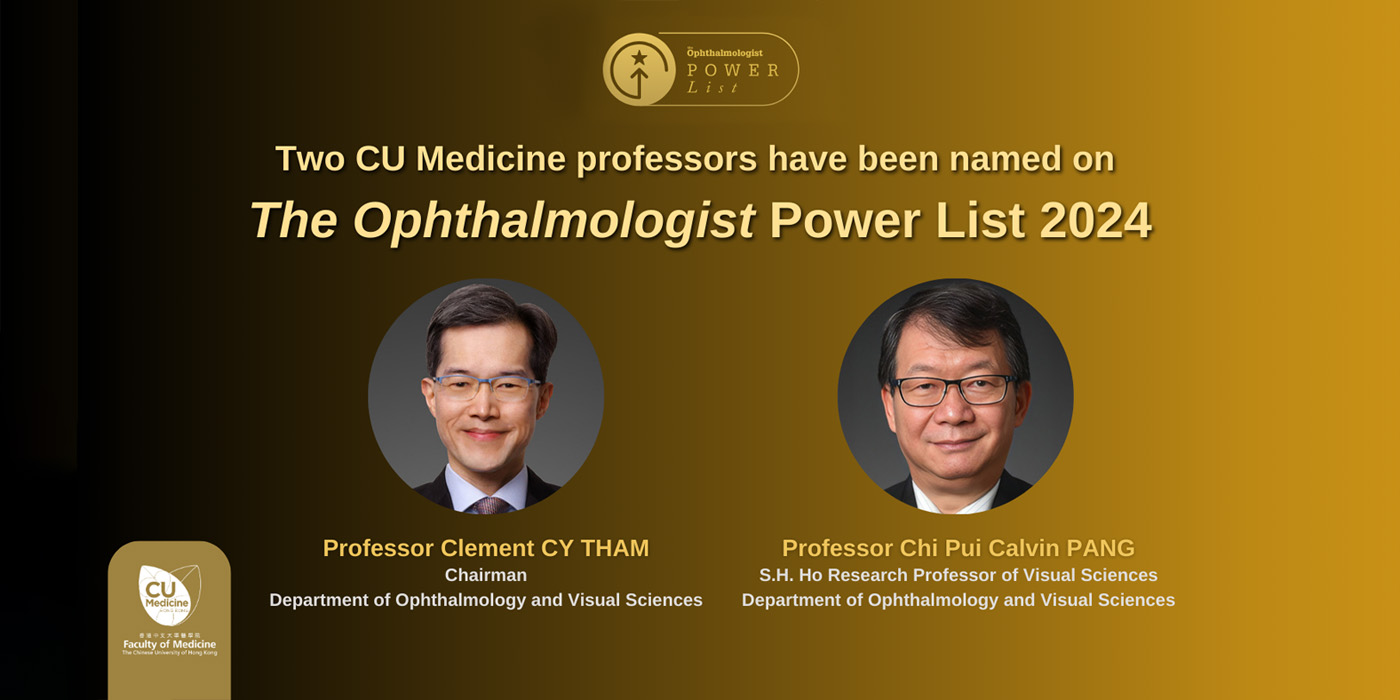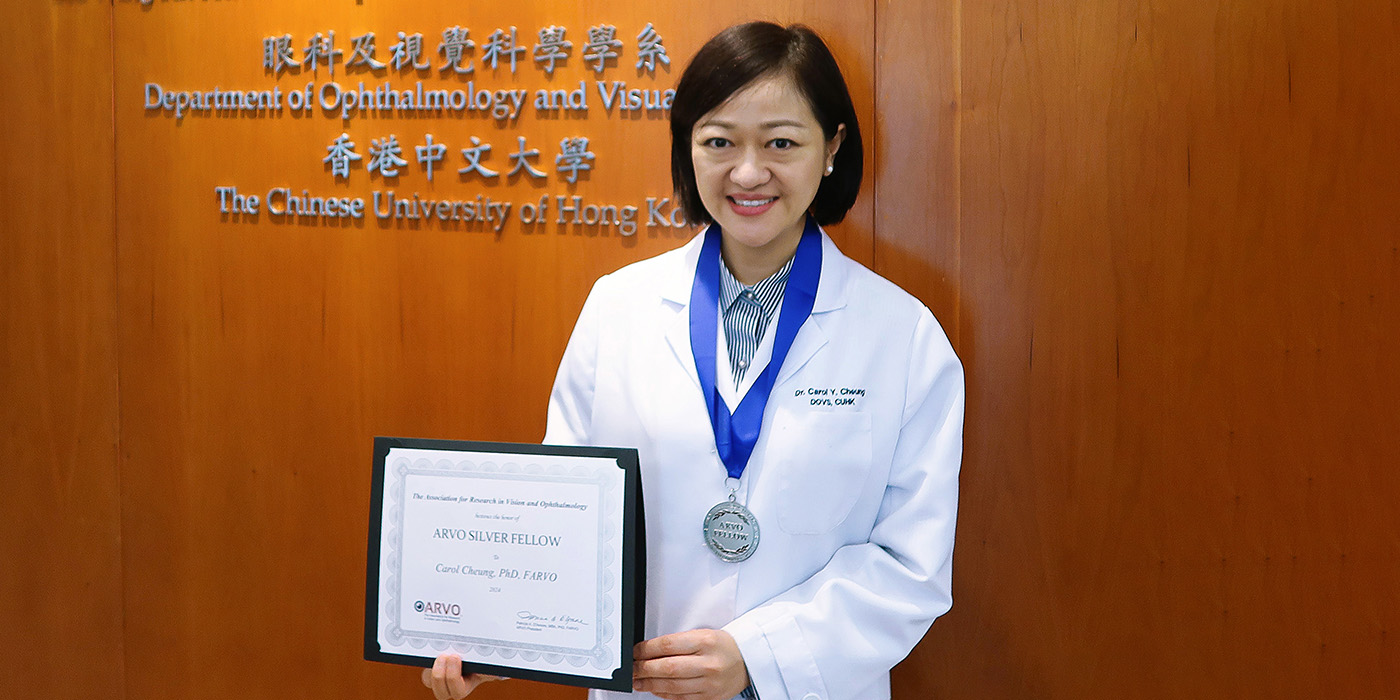
Professor Clement Tham Chee-yung, Chairman of the Department of Ophthalmology and Visual Sciences, and Professor Calvin Pang Chi-pui, S.H. Ho Research Professor of Visual Sciences, have been named in “The Ophthalmologist Power List 2024” for their contributions, leadership and influence in the field worldwide.
The power list by the international publication, shortlisted by a panel of judges including experts and scholars in ophthalmology, recognises the top 100 most influential individuals in the field of ophthalmology every year.
This is the third consecutive year Professor Tham has received the honour. A clinician-scientist with a special interest in glaucoma, he has been the secretary-general and chief executive officer of the Asia-Pacific Academy of Ophthalmology (APAO) for the past 11 years, and also the President of the Asia-Pacific Glaucoma Society. Professor Tham is placed by Expertscape among the top 1% of scholars publishing on the subject over the past ten years, based on a PubMed-based algorithm.
Professor Pang pioneered research on molecular genetics and genomics of eye diseases in Hong Kong. His research includes glaucoma, vitreoretinal diseases, myopia, uveitis, thyroid eye diseases, retinoblastoma, and inherited retinal diseases. He also works on risk factors and prevention of childhood myopia, and advocates the concept of “health care through children eye care”.

Meanwhile, Associate Professor Dr Carol Cheung Yim-lui from the same department has been named Silver Fellow from the Association for Research in Vision and Ophthalmology (ARVO) during the ARVO annual meeting this year in Seattle, US. ARVO is the largest eye and vision research organisation in the world, with about 12,000 members comprising eye and vision researchers from over 60 countries and regions.
Dr Cheung’s main research interest is “imaging of the eye” based on the concept that the eyes are the “window” to the human circulation and nervous systems. She has focused on the development and application of image analysis techniques and artificial intelligence for studying eye diseases and systemic diseases. Remarkably, Dr Cheung led an international team to develop the world’s first AI model using retinal fundus photographs alone to detect Alzheimer’s disease as well as develop three-dimensional AI models to detect sight-threatening eye diseases including glaucoma and diabetic retinal disease.